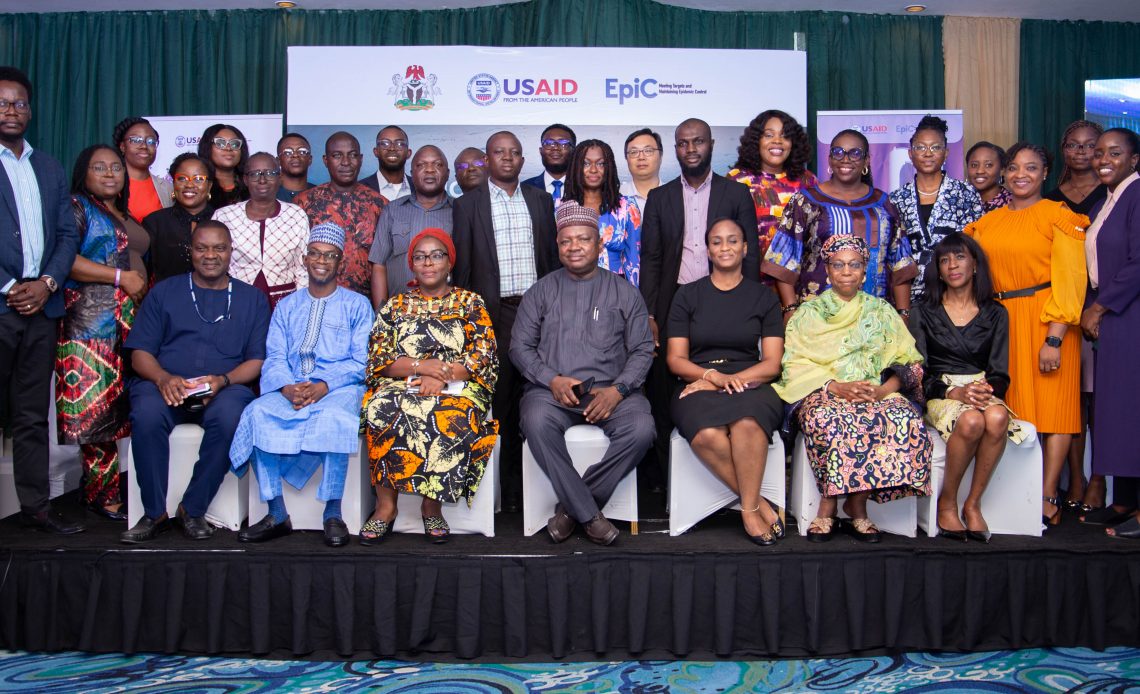Medical oxygen is an essential lifesaving medicine used in a wide range of situations in health facilities, including surgery, trauma, internal medicine, emergencies (paediatrics and gynaecology), and intensive care units. Globally, hypoxemia is a major fatal complication of pneumonia, accounting for an estimated 20–40% of the pneumonia deaths that could have been prevented, with accessible medical oxygen therapy. In Nigeria, at least 625,000 deaths per year are due to diseases associated with hypoxemia.
The considerably strained health systems are leading healthcare facilities to run out of medical oxygen and driving rising demand for medical oxygen supply. Similarly, the fundamental difficulty for medical oxygen is persistent data gaps about oxygen needs, available service capacity, and the ability to supply them cost-effectively. To maintain medical oxygen security, a multifaceted approach that monitors oxygen access at the point-of-care and patient levels is required.
Dialogue for Medical Oxygen Security for Health Emergencies
The EpiC Project, in partnership with the Federal Ministry of Health & Social Welfare (FMoH&SW), held a multilevel stakeholder dialogue in Abuja in November 2023, to examine medical oxygen security in Nigeria, as well as strategies to address current and future challenges in the healthcare system.
In his welcome remarks, Dr. Victor Ogbodo, the Acting Country Director at FHI 360, emphasised the need for Nigeria to build a strong and resilient health system capable of tackling health emergencies and medical oxygen security.
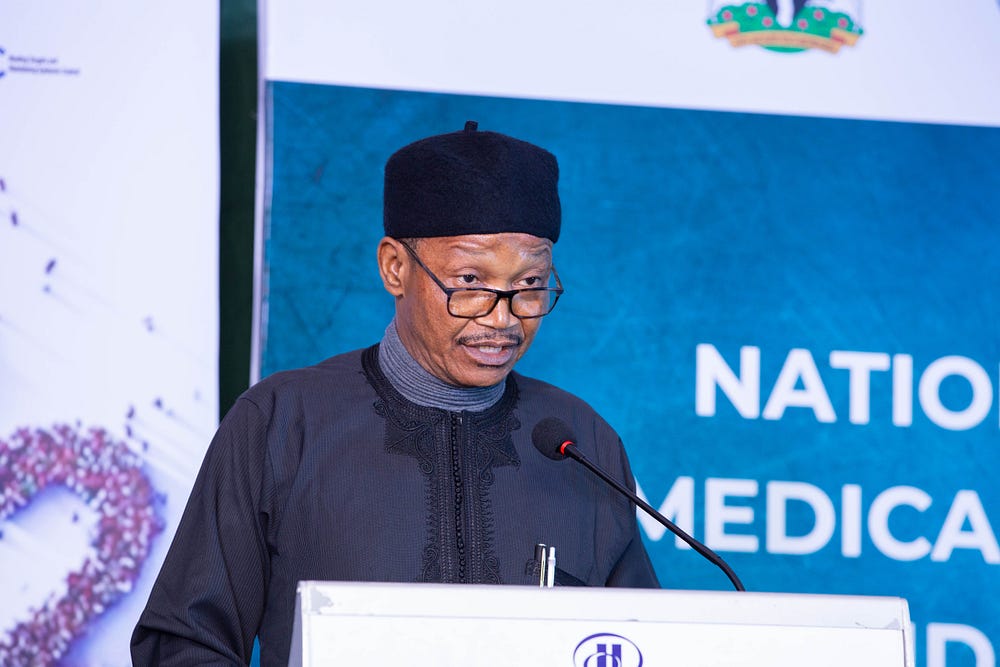
In his opening remarks, Dr Gilbert Shetak, the National Oxygen Desk Director at the Department of Hospital Services at the Federal Ministry of Health and Social Welfare (FMoHSW), called for discussions on how the approved sustainable financing mechanism can be adequately operationalised in line with the National Council for Health’s recently approved single account for medical oxygen in health facilities.
Prof Moses Chingle, a consultant for the FMoH&SW, provided insights on Nigeria’s medical oxygen landscape. He stated that the five-year National Strategy for the Scale of Medical Oxygen, launched in 2023, recommended a strong investment case and innovative financing for medical oxygen.
Strengthening medical oxygen infrastructure in Nigeria; Role of the private sector.
The first panel discussions centred on the need for public-private partnerships (PPP) for medical oxygen infrastructure development, maintenance, and sustainability, including vacuum-insulated evaporator (VIE) systems across Nigeria. Engr Peter Oguagwu, an Air Separation representative, emphasised poor medical oxygen infrastructure maintenance as a significant challenge facing the oxygen ecosystem in the facilities; however, he added that viewing the plants as an income-generating asset makes it easier to maintain them. In addition, he stated that institutionalising trained Biomedical Engineers in the health facilities and PPP could be leveraged for maintenance of oxygen infrastructure.
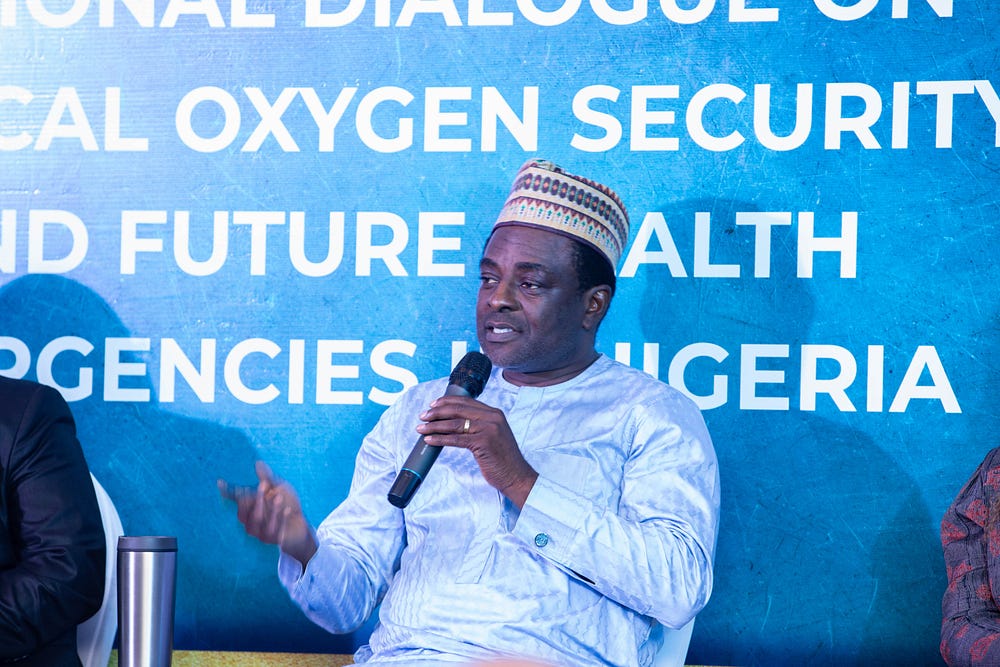
Mr Suleiman Dauda, an Air Liquide representative, emphasised the need of having enough storage capacity for the health facilities in order to ensure supply continuity and reliability of supplies, as well as to prevent wastage. As a result, it is necessary to match the output produced per time period to the future demand. Furthermore, he said that economic analysis determines the use of VIE systems in specific locations, provided that transportation is not the biggest cost.
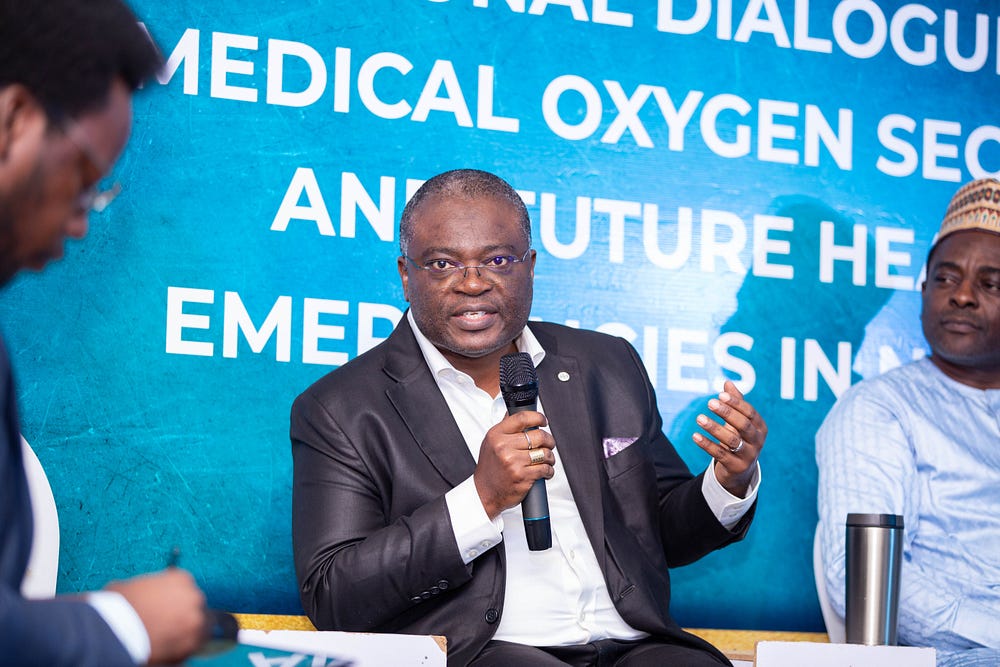
According to Martin Dohsten, Health Manager, Maternal, Newborn and Child Health at UNICEF, “UNICEF now also supports a solar power system that will power the plants in Kano and Oyo States, and it is the first one in the world”. He added that this will also aid sustainability, since energy is the key cost driver in medical oxygen production.
Dr Pamela Ajayi, CEO of the Healthcare Federation of Nigeria, highlighted the need of private sector investment in the medical oxygen ecosystem and ensuring everyone can access oxygen at a reduced cost. “ECOWAS laid a law about eight years ago, zero percent duty on lifesaving equipment. Do you know that this has not been implemented?” she said. Implementing this will significantly reduce the cost of medical oxygen.
Partnerships for Sustainable financing for medical oxygen
Deliberations went further on sustainable funding for medical oxygen in health facilities. The panellists comprised of representatives from the FMoH&SW, World Bank, FHI 360 and the Chief Medical Director (CMD) at the Jos University Teaching Hospital (JUTH).
Dr Gilbert Shetak highlighted the potential of microfinancing medical oxygen at health facilities through the Basic Health Care Provision Fund (BHCPF), the National Health Insurance Scheme model, and the establishment of stand-alone hospital models to reduce costs for patients who cannot afford to pay for medical oxygen.
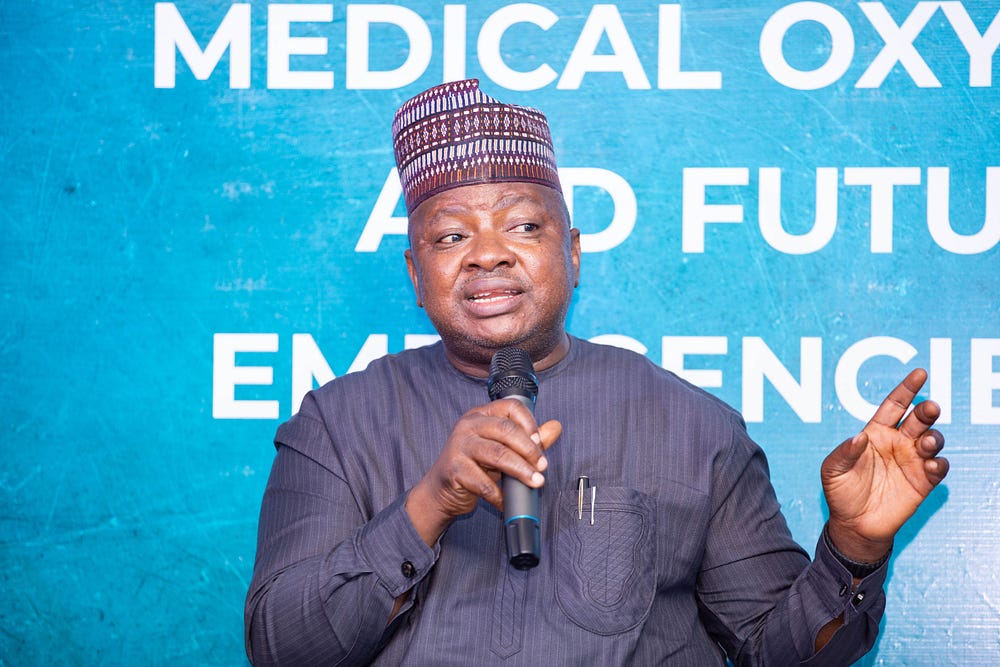
The representative from the World Bank, Dr Olumide Okunola, Senior Health Specialist at the World Bank emphasised that in order to achieve universal health coverage, public financing should be the primary source of funding medical oxygen. As a result, appropriate utilisation of the limited public financing is critical in order to distribute medical oxygen where it is most needed.
Dr Pokop Wushipba Bupwatda, Chief Medical Director at JUTH, stated that late fund releases hinder budget operationalisation and oftentimes the funds released late include resources to recruit healthcare workers, but often, waivers to recruit are not approved. Furthermore, he suggested microfinancing models for medicines and emergencies (including medical oxygen) through the BHCPF, “Can we look at the telecommunication companies? Is it possible for, say, every ten minutes call, you deduct one naira from it and allocate to further fund BHCPF?” he suggested.
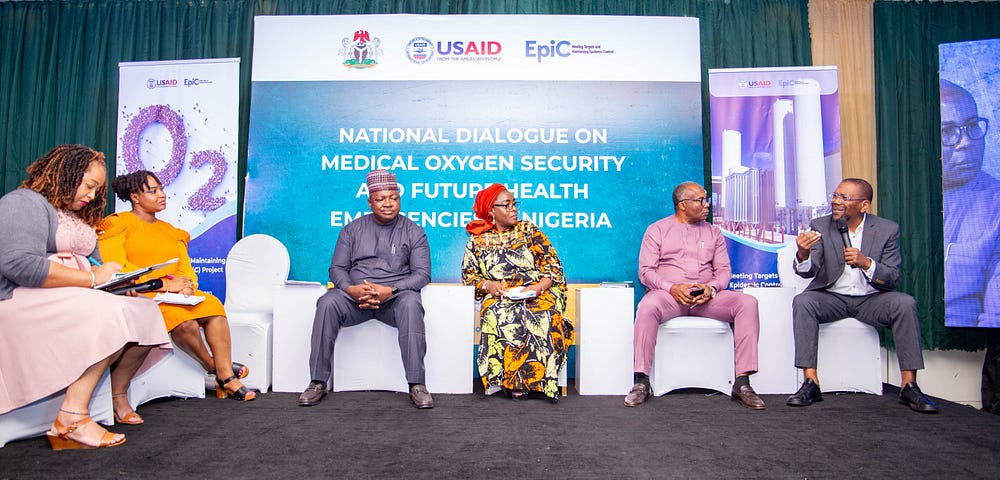
Furthermore, Dr Hadiza Khamofu, FHI 360, highlighted the need for transparency and accountability. She said that proper data and financial management systems for medical oxygen will inform and ensure appropriate servicing and maintenance of the plants. She also spotlighted the need to take responsibility and ownership of the investments to prevent wastage through vandalisation in the health facilities.
The way forward
The key findings for improving medical oxygen security in Nigeria include:
- Operationalising a one one-basket model for medical oxygen financing across Nigeria. Utilising the oxygen desk across the states to create one account for all medical oxygen investment in the state, supervised by the Federal Ministry of Health and Social Welfare.
- Deliberate with the states and agree on the suggested microfinancing model for medical oxygen, particularly for indigenes that cannot afford the costs, ensuring resources are recovered.
- Learn from UNICEF’s solar-powered model to reduce the cost of production for medical oxygen across the states beyond the pilot states.
- CMDs are responsible for medical oxygen investments, preventing losses through wastage and vandalisation.


